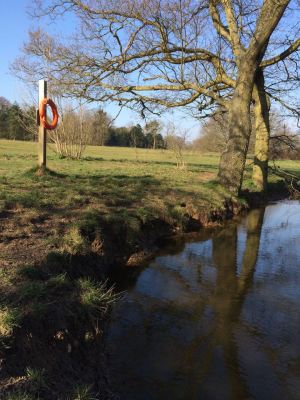Activity 1 and 2
This scenario highlights a number of issues that this student has. I course manage a part-time course where students attend once a month and some of these are problems that these students have come to me with. Although we are seeing some great changes to assessment strategies to reflect the needs of employers and ensure that we are not over-assessing students it is important that students do get a sense of how they are performing. Although I have identified 5 issues these are interlinked rather than discrete issues.
Specifically in this case I think the issues are:
1. Student does not feel part of the group and remote to the tutor therefore making this a lonely learning journey (not much chance for collaborative learning there).
2. It takes time to receive a reply from the tutor but study needs to fit around the students other commitments (if the student feels isolated they might not notice other students are having the same problems too).
3. Written guidance not relevant to specific situation.
4. Material is out of date.
5. Need for interaction and feedback to gauge performance.
Addressing the issues
1. Feeling part of a community: If we think back to ideas like Maslow’s hierarchy of needs social interactions are important. Whether it be to share your frustrations and challenges or to take part in collaborative learning feeling part of a community is a basic requirement to support learning. I have seen this in institutions that only have a small number of postgraduate research students that do not often meet but is especially relevant to students studying at a distance. There are lots of ways that we can use social media to help build these connections and relationships. At the moment I am using a closed Facebook group. Students are using this to post and discuss content specific material as well as information relating to course management and other aspects of student life including some of their frustrations and issues as well as when they find something useful to share with the group. I have considered making videos as part of the student induction material. Although they meet me at induction I thought it might be useful to gain that familiarisation as they will not be back in college for a month after the initial weekend.
2. In terms of straightforward practice I can see a problem here. Students want the flexibility to be able to study when they want, where they want and at a pace they want – this is one facet of flexible learning. This is difficult to marry to tutors who work a fixed number of hours each week and who cannot just match the students requirements. In the digital age there is an issue that response is so often immediate it becomes an expectation. Instead it might be necessary to shape the students expectations from the outset – provide virtual office hours, have automated responses for feedback if applicable and encourage students to form their own networks to allow them to provide peer feedback and support.Can we interchange the terms flexible and adaptable? The second element relates to thinking of flexible learning in HE as part of the process preparing students for employment in an ever-changing world. Graduates will have to cope with situations like this ,our job as tutors is to help facilitate the development of strategies so that the student can be flexible, which will provide them with the skills to be adapt in the workplace!
3. This may be an opportunity for students to co-create guidance, sharing experiences and finding similarities in their situations. This could be helped by some of the ideas already discussed in section 1.
4. I am not sure if it is a new issue for material to be out of date but maybe a changing issue. To meet QAA requirements institutions should have procedures in place to ensure currency of material. However, that does not mean that it is not responsibility of individual tutors and course managers not to ensure that this is the case. In the old days new paper versions of all sorts of materials were produced on an annual basis – now they lurk electronically and in tutors busy lives it is possible that a glance identifies material is present but not whether it is current. It is not all about the institution though, students have to recognise how digital material is archived. Whereas students previously would not have had access to older materials we are now seeing more resources left online. Blogs are a good example – some blogs go back several years and the older posts have lost their currency that does not mean they are not useful especially if they document progress.
5. Although I have tried to discourage students from worrying about what marks they get, they do need something to gauge how well they are doing. This has been really noticeable to me this year. Formative feedback is often not enough. On both level 4 and 7 professional skills modules this year students have submitted an electronic portfolio. They received formative feedback on the individual artefacts but I did not want to grade this as the mark for the assessment was for the portfolio as a whole and in particular the reflection on the artefacts. The students found this very disconcerting and for next year I will grade them – not using individual marks (we usually use a 100 point scale) but by using grade boundaries 1st, 2.1, 2.2 etc. To help give students a guide to how they are doing. At level 4 I had very good retention, at level 7 less so, which may in part be to students not being confident that they were not at the level. Next year the plan is to grade and ensure a more balanced timing of assessments that coupled with timely feedback should hopefully address this problem as it would do in the scenario.
My reflections
Firstly on the scenario, I did not expect to write this much. I started out planning to deal just with activity 1 but it has turned into a reflection on my practice. I had been reading Ryan and Tilbury’s work on ‘Flexible Pedagogies’ and this definitely had some influence but I would have liked to have brought in more references but was already worried it had become too wordy so I haven’t.
Secondly on my practice, I plan to make a number of changes next year for delivery especially of the MSc modules.
1. Promote the development of an online social space for the time we are not on campus.
2. Publicise virtual office hours to students so they know when they can get hold of me.
3. Continue to promote institutional change to develop more flexible pedagogies through my role on the Learning and Teaching Group.
4. Adjust my assignments to help students be aware of how they are getting on and so that they feel that their work is worthwhile.





This is a very thoughtful piece of writing that clearly shows some very positive outcomes. Taking this opportunity to reflect has given you the time to consider and plan useful enhancements to your practice. I really enjoyed reading this and it has also inspired me to think along similar lines.
LikeLike